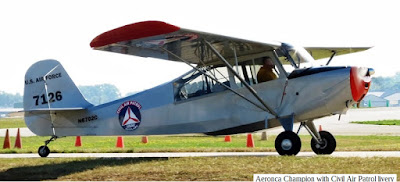I HEARD A “JOKE” MANY YEARS AGO that went like this: Passengers board an airplane and a flight attendant gets them seated.
The doors close and, from the cockpit, comes the Captain’s voice.
“Ladies and gentlemen, I’m your captain and I welcome you to the airline’s first fully computerized flight.
“The flight attendants are the only crew on board; the cockpit is empty. A computer will fly the plane safely to its destination.
“Do not worry, nothing can possibly go wrong, go wrong, go ...
SO FAR, OUR CARS are equipped with automatic breaking, automatic lane drift, and host of other things.
Instrumentation, such as it is, is moving from in front of the driver’s eyes to the center of the dashboard in the form of a computer screen. Never mind that the engine is computer-controlled and diagnostics are computer-generated. (No wonder there are few real mechanics around.
Airplanes take off, travel, and – usually – land all under computer control. (Never mind the “occasional” crash into a mountain1 or before clearing end-of-runway obstacles2.)
Nothing can possibly go wrngcq
I learned to fly on an Aeronca Champion, a 65 horsepower, tandem-seat, fabric-covered tail dragger.
Instrumentation? Minimal.
Computerization: No.
The tower lacked a radio (go/no go was by green/red lights).
My cars were computerless until 1970 when I bought a VW microbus with a diagnostic computer. Except for a couple of Volvos (122S and P118), any mechanic could diagnose and repair whatever was wrong.
Admittedly, computers as diagnosticians are “not bad.” They more rapidly identify problems, albeit not always correctly. (I got a “Check Engine” light on a Ford Explorer because I failed to fully close the gas cap.)
My fear with “auto-braking” cars is that I will be zipping down the Interstate (at the speed limit) and, sans warning, the car will stop. Bad enough, but what if the car behind mine fails to stop, or the one behind that car. A 40-car pileup is well within the realm of probability. The “domino” effect.
If you have a computer (obviously you USE computers) with a Microsoft Operating System you know about the “Blue Screen of Death" – the computer crashes. I suppose Macs and Linux and Unix, and even Commodores (remember them?) also crash; Microsoft just is – or justly is – famous for its blue screens. My brand new made-in-China HP crashes almost daily sans warning -- just does a self-reset. Come back, "Carly" Fiorina; HP needs you.
I’m not convinced that auto-breaking and anti-lane drift features are “ready for prime time.” Less so for driverless vehicles. Granted, humans don’t always do such a great job behind the wheel, but at least a human can be removed until capable of continuing down the road.
A combination of computerization with human override might be appropriate.
It’s bad enough when people have all manner of technology available and don’t know how to use it.
Worse, is having all manner of technology available and not knowing what to do when it fails, as the Asiana aircrew sadly discovered.
I once lived next door to a U.S. Navy aircrewman. He and his crew flew over miles of open Pacific ocean, using the stars' positions as navigational aids – just as sailors had done for hundreds of years.
The Navy man sneered at Air Force pilots who, without sophisticated navigational gear, would get lost over the same landmark-free waters.
The the Air Force pilots and navigators knew that “nothing can go wronngggg.”
Sources
1. Brasil soccer team: http://tinyurl.com/grqrp2c
2. SFO-Asiana crash: http://tinyurl.com/y7h3fsdk
PLAGIARISM is the act of appropriating the literary composition of another, or parts or passages of his writings, or the ideas or language of the same, and passing them off as the product of one’s own mind.

No comments:
Post a Comment